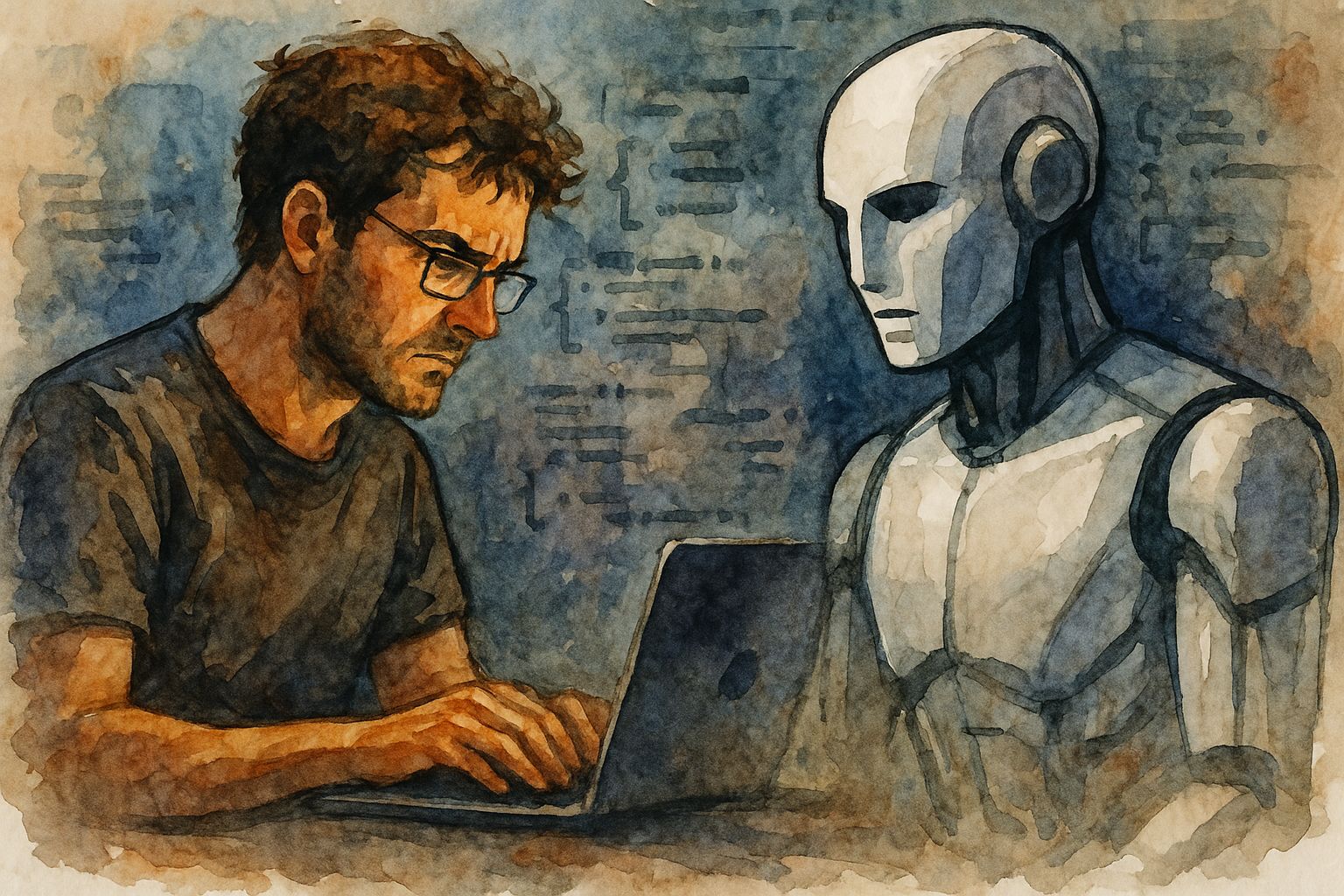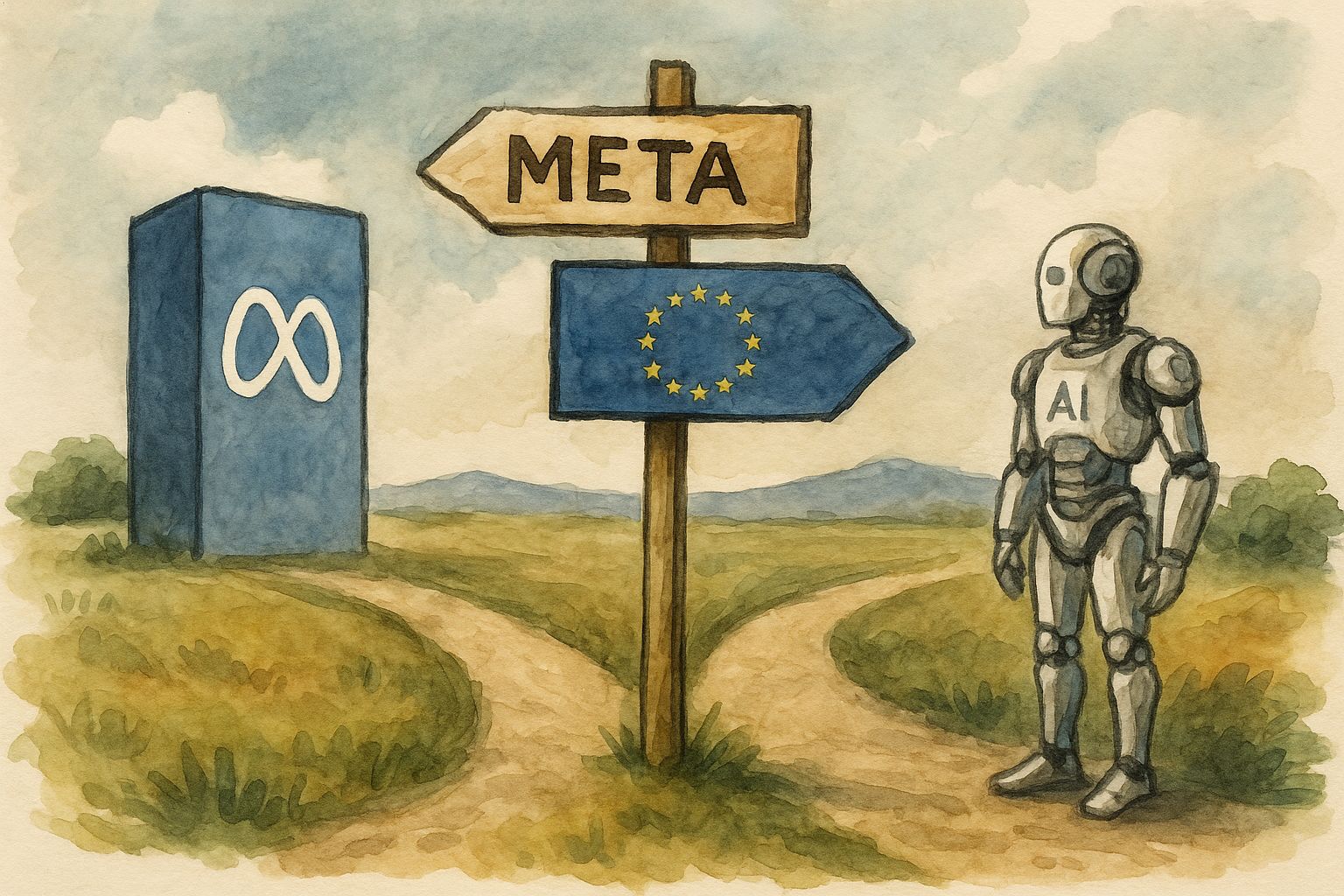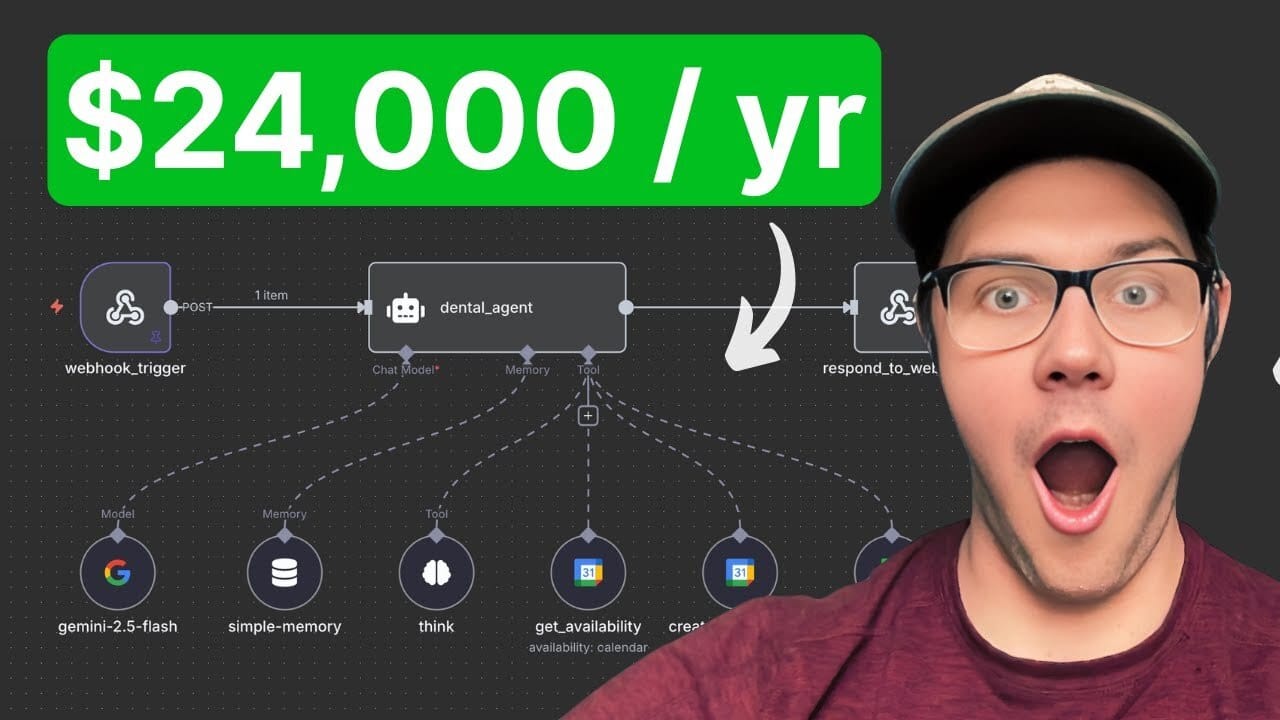- The Recap AI
- Posts
- Netflix's AI-made blockbuster
Netflix's AI-made blockbuster
PLUS: AI's secret economic stimulus, a human beats OpenAI's model, and Meta rejects EU's AI rules
Good morning, AI enthusiast.
Generative AI has officially moved from a background tool to a star of the show for Netflix. The streaming giant revealed it used AI to create final footage for a major sci-fi production, a first for the company and a major step for the technology in entertainment.
The move delivered a key visual effects scene 10 times faster and at a previously unfeasible cost, but it also wades directly into one of Hollywood's most contentious debates. Does this public embrace from a streaming giant set a new precedent that will speed up AI adoption across the entire industry?
In today’s AI recap:
How to build a $24K / Year Dental Voice Agent (Watch here)
Netflix’s AI-generated blockbuster scene
AI’s hidden economic stimulus
A human coder defeats OpenAI’s model
Meta rejects the EU’s new AI rules
Netflix's AI-Made Blockbuster

The Recap: Netflix revealed it used generative AI to create final footage for a major production for the first time, generating a key visual effects scene for the Argentinian sci-fi series 'The Eternaut'. Co-CEO Ted Sarandos announced the move, highlighting significant cost and time savings.
Unpacked:
The creative team used AI to generate a scene of a building collapsing in Buenos Aires, completing the sequence 10 times faster than possible with traditional VFX tools and at a cost that was previously unfeasible for the show's budget.
This isn't an isolated experiment; Netflix is integrating AI across its platform, including a new AI-powered conversational search that allows users to find content with natural language prompts like “show me funny and upbeat stories.”
The move comes as generative AI remains a contentious issue in Hollywood, where it was a central point of conflict during the 2023 actors and writers' strikes over concerns about job displacement and creative control.
Bottom line: This signals a major shift for generative AI in entertainment, moving it from a theoretical tool to a practical part of the final production pipeline for a global streaming giant. Netflix's public endorsement sets a powerful precedent that could speed up the adoption of AI tools across the entire industry.
AI's Secret Stimulus

The Recap: The AI infrastructure boom has become so enormous that its capital spending is now acting as a massive, private-sector stimulus for the U.S. economy. This spending spree is projected to account for nearly 2% of U.S. GDP in 2025, potentially masking underlying economic weakness.
Unpacked:
The scale of this investment frenzy is historic, having already surpassed peak telecom spending during the dot-com bubble and now approaching the relative size of the 19th-century railroad boom.
This capital isn't appearing from nowhere; it's being aggressively reallocated from other areas, causing non-AI venture capital to dry up and prompting tech giants to divert funds from traditional cloud services.
This wave of spending is likely the main reason the economy has avoided a deeper downturn. One analyst recently speculated that without AI capex, Q1 GDP might have seen a significant contraction.
Bottom line: This flood of capital is providing a powerful, if temporary, economic buffer against headwinds. However, by starving other sectors and building rapidly depreciating assets, this boom is also setting the stage for significant economic disruption down the road.
AI Training
The Recap: We built this AI voice assistant with inspiration from this reddit user who sold a similar system to a dentist for $24,000 per year! In this video, we’re going to breakdown the full n8n workflow powering this system and show you exactly how you can build your own voice agent for your use case.
P.S We also launched a free community for AI Builders looking to master the art and science of building AI Automations — Come join us!
The Man vs. The Machine

The Recap: In a modern-day John Henry story, a human programmer narrowly defeated a custom OpenAI model in a 10-hour world coding championship. The victory showcases the limits of current AI models against top-tier human expertise and endurance.
Unpacked:
The competition was a 10-hour marathon where contestants worked to solve a single, complex optimization problem, pushing both human and machine to their strategic limits.
While Polish programmer Przemysław Dębiak took first place, declaring that "humanity prevailed (for now!)", the OpenAI model still placed second, outperforming 10 other elite human competitors.
The win comes as AI coding assistants have dramatically improved, with models jumping from solving 4.4% of coding problems on a key benchmark in 2023 to 71.7% in 2024.
Bottom line: This victory is a significant moment celebrating human ingenuity and endurance in the age of AI. While impressive, it also serves as a benchmark for AI's current capabilities, a milestone that will likely be surpassed soon.
Where AI Experts Share Their Best Work
Join our Free AI Automation Community
Join our FREE community AI Automation Mastery — where entrepreneurs, AI builders, and AI agency owners share templates, solve problems together, and learn from each other's wins (and mistakes).
What makes our community different:
Real peer support from people building actual AI businesses
Complete access to download our automation library of battle-tested n8n templates
Collaborate and problem-solve with AI experts when you get stuck
Dive into our course materials, collaborate with experienced builders, and turn automation challenges into shared wins. Join here (completely free).
Meta Rejects EU's AI Rules

The Recap: Meta announced it will not sign the European Union’s new voluntary AI code of practice. In a major post, the company's public affairs chief argued the code is an overreach that will throttle innovation.
Unpacked:
The code is a voluntary framework meant to guide companies in complying with the EU’s binding AI Act, but choosing not to sign will likely lead to more regulatory scrutiny from the Commission's AI Office.
Meta isn’t alone in its opposition; over 40 top European firms, including Airbus and SAP, co-signed a recent letter calling for a two-year delay to the AI Act's enforcement.
However, the move draws a clear line in the sand, as competitors like French AI startup Mistral and industry leader OpenAI have both committed to signing the code.
Bottom line: This decision creates a significant fracture between a Big Tech giant and a key global regulator, setting the stage for a high-stakes battle over AI governance. The outcome could establish a global precedent for how governments approach the regulation of powerful AI models.
The Shortlist
The White House is preparing an executive order that would require AI models from companies with federal contracts to be politically neutral, targeting what it deems "woke" AI.
xAI released Grok 4, its newest flagship model that it claims sets new highs on reasoning benchmarks like GPQA Diamond and Humanity Last Exam, alongside a specialized "Heavy" version for complex tasks.
OpenAI warned that its new ChatGPT Agent has a "high" capability for biorisk, meaning it could potentially help novices create biological threats, prompting the company to implement extra safeguards.
Meta hired two more key AI researchers from Apple's foundation models team, escalating the talent war as it builds out its new Superintelligence Labs division.
What did you think of today's email?Before you go we’d love to know what you thought of today's newsletter. We read every single message to help improve The Recap experience. |
Signing off,
David, Lucas, Mitchell — The Recap editorial team

